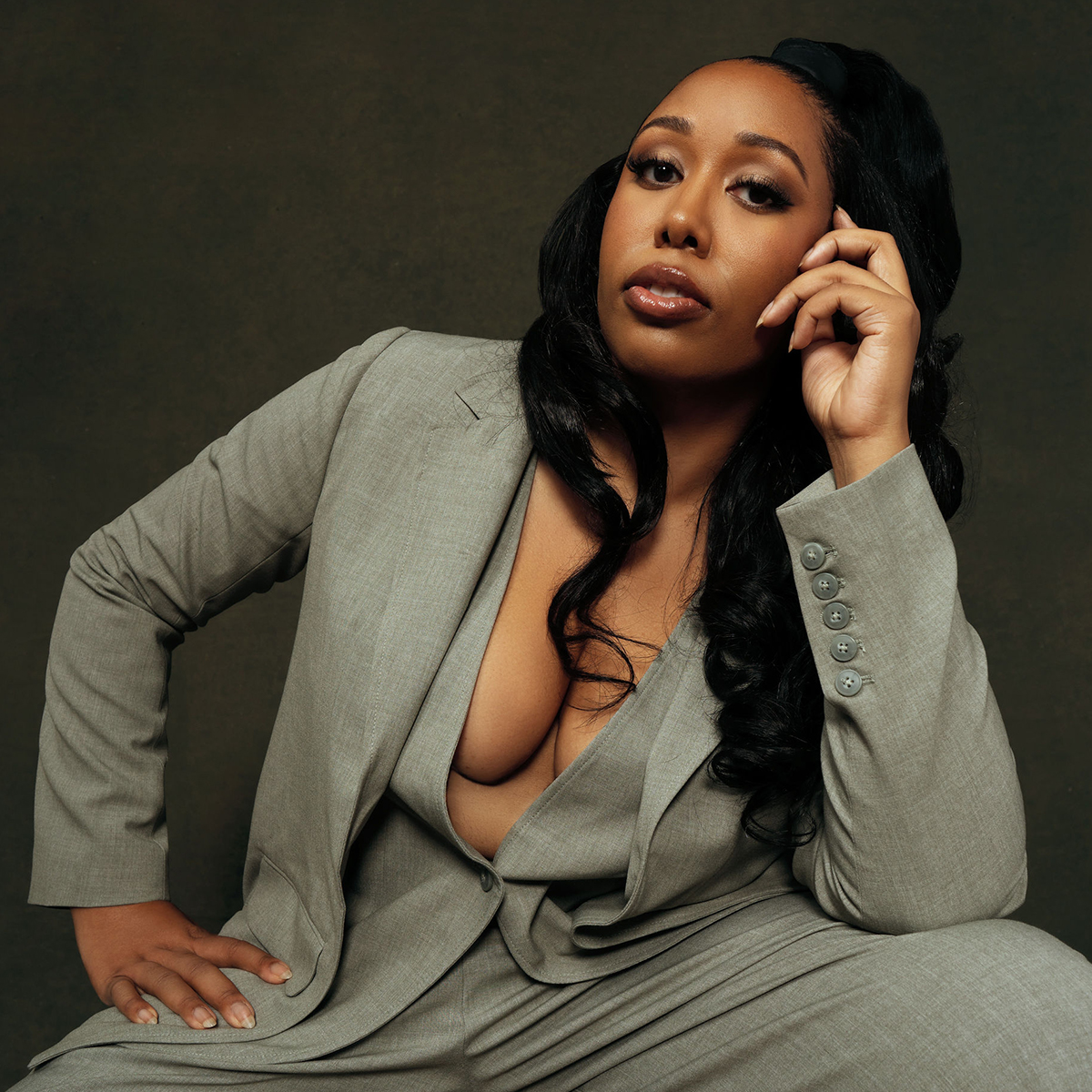What It's Really Like to Live With Bipolar Disorder on a Daily Basis
According to the National Alliance on Mental Illness, approximately 18.5% of adults in the United States experience mental illness every year. That’s a significant portion of our population—one in five people—yet the stigma and misunderstanding that surround mental health remain rampant. That’s why in honor of Mental Health Awareness Month, we put the call out to our readers to share their own experiences with mental illness and other conditions: their victories, their struggles, and what it’s really like to negotiate with a society that makes misguided assumptions about who you are based on an arbitrary definition of the word “normal”. Our series My Life With highlights the raw, unfiltered stories of women who deal with anxiety, bipolar disorder, postpartum depression, and more all in their own words. Below, Clare Hasbrouck shares how she finally learned that she had bipolar II disorder after years of misdiagnosis.

My mental health journey began in 2010. As conceited as it sounds, I always considered myself to be a pretty smart kid. I loved to read, I loved learning about history, and I loved school. This made it extra frustrating when I started struggling in school but couldn’t figure out why. My teachers chalked it up to a lack of motivation. My dad called me lazy. The worst part of this whole experience is that I look back and I remember trying really hard in school. It felt like I was running with weights around my ankles and I would never be as fast as the students around me.
When one teacher finally noticed me staring into the distance, she came to the conclusion that I needed to be tested for ADHD. The tests came back saying that I had a severe case of ADHD Inattentive, and I was put on medication. I immediately felt as though those ankle weights had been removed, and I was soaring. I accomplished my goals so easily, and I made my parents proud.
Things went back to normal for about a year and a half before I started to struggle again. During my sophomore year of high school, I developed disordered eating habits. Anyone who has ever taken an Adderall can tell you that it seriously messes with your appetite. This side effect is not ideal when applied to a high school girl who thought she needed to lose weight (looking back on this, I want to shake younger me. She was perfect just the way she was.) I was playing lacrosse at a pretty competitive level at the time, and the recruitment process definitely added to the pressure for me to look and feel a certain way. I didn’t know it at the time, but I was underweight and my eating practices were very unhealthy.
The college application process can be stressful for anyone, but I felt like I struggled with it more than most. I visited what seems like a record 46 schools when I was looking at colleges. While some people from my school applied to two or three schools, I applied to 10 schools and I only got into three. I felt like no one wanted me.
By the end of my senior year, I felt alienated at school. I was lonely and afraid of being a disappointment to my parents. After one particularly bad night where I almost drove off of an overpass, I was diagnosed with severe depression. I went to therapy for about six months before I convinced myself I didn’t need it anymore. Instead I would sit in the parking lot of the Chick-Fil-A near my therapist’s office, order a milkshake, and read a book. Before I could really think about how I felt, I was off to college.
When I made my college decision, I had these grand notions about getting away from all the people from my past who were causing these problems. I am from a large city in the South, and I wanted the exact opposite of that. I ended up at a tiny school in Maine. My first semester was amazing. I made lots of friends, joined the crew team, and met my boyfriend (now fiancé). Fall in New England is really special, and I thought I was the happiest I had ever been.
Then winter came. It was the winter of 2015—if anyone remembers, that was the year that there was so much snow that the city of Boston had to truck piles of snow outside the city because there was just so much of it. It was so cold that my college had to close down for the first time in decades just to ensure that no students got frostbite. Something that isn’t reported in the news is that winter in Maine is dark. The sun comes up around 8 a.m. and starts to set around 4 p.m. I was in class from 9 a.m. to 2:30 p.m., which means I missed almost all the sunshine. My mom sent me vitamin D supplements and one of those super-bright mood lights, but none of it helped. I started missing class more often until I wasn’t going at all.
If you try to ask me specific questions about the second semester of my freshman year of college, I probably won’t be able to answer them for you. I can tell you that I rarely got out of bed, I never did laundry, I subsided off of string cheese I kept in my mini fridge, and I don’t think I showered more than twice. The school psychiatrist prescribed me an antidepressant, which only made it worse. I finished the school year with a 1.54 GPA and I was asked to take a mental health leave.
Now, to anyone reading this story, it might seem like I have a lot of mental illnesses. In reality, I only have one. When I came home from college to seek treatment, the psychiatrist at the local hospital finally gave me a diagnosis that made sense: I suffer from bipolar II disorder.
Most people, including myself at the time of my diagnosis, have no idea what that means. They hear bipolar and either think of mood swings or of manic episodes. Scenes from shows like Empire come to mind, where characters battle dramatic manic episodes. My life is not like that. Bipolar II is characterized by at least one episode of major depression and at least one episode of hypomania. When I describe this to people, I have them imagine a series of hills (representing mania) and valleys (representing depression). With bipolar I, the hills and valleys are usually pretty even. When you look at bipolar II, the hills are much smaller, but the valleys are much deeper. This is why so many cases of bipolar II, like my own, are misdiagnosed. The hypomanic phases can look like ADHD, and the depressive phases just look like bad depression.
Some of the ways that my psychiatrist nailed down my diagnosis were the characteristics of my hypomanic episodes. I have always had a difficult time managing my spending. When I am in a hypomanic episode, it gets even worse. I buy things without thinking about it, I usually drain my bank account, and I sometimes rack up massive credit card bills. I also have very little need for sleep during my manic episodes. The depressive episodes usually follow, and they are debilitating, although my episodes are a lot like regular depression.
My day-to-day life with bipolar II looks a lot more normal now than it did when I started treatment. I went from two therapy sessions every week, one group therapy and the other one-on-one, down to one. I take more medications, but they are fine-tuned to exactly what I need. On the outside, I present as someone who is completely stable. And that is because I am, and I have been for about a year.
Now, I never take it for granted that that stability could be easily disrupted and I could fall back into the cycle of hypomania and depression again. In fact, I know that one day that will happen. I have my fears and my anxieties over my mental illness. How will I deal with going off my medications when I decide to have kids? Will I be okay in the workforce for the rest of my life? Will having a severe mental illness prevent me from succeeding in my career? These are questions that I think about a lot. But right now, I am grateful for the team of people who keep me healthy, and I am grateful for the journey that led me to the place I am now.
Disclaimer
This article is provided for informational purposes only and is not intended to be used in the place of advice of your physician or other medical professionals. You should always consult with your doctor or healthcare provider first with any health-related questions.
-
 This Elevated Basics Brand Is Every NYC and London Fashion Person's Best-Kept Secret
This Elevated Basics Brand Is Every NYC and London Fashion Person's Best-Kept SecretAnd I just tried on nine pieces in its NYC pop-up.
By Eliza Huber
-
 Chic Shopping Lists Are My Thing—31 Great Finds From Nordstrom, Zara, Banana Republic, Shopbop, and Ref
Chic Shopping Lists Are My Thing—31 Great Finds From Nordstrom, Zara, Banana Republic, Shopbop, and RefJackets, dresses, flats, and more!
By Bobby Schuessler
-
 This Founder Shares Why We Should Start Celebrating Rest
This Founder Shares Why We Should Start Celebrating RestBurnout is nothing to be proud of.
By Kia Topps
-
 Why Dr. Deepika Chopra Believes that Optimism is Resiliency
Why Dr. Deepika Chopra Believes that Optimism is ResiliencyWhy you should start embracing every feeling.
By Kia Topps
-
 How TikTok's Favorite Photographer Helped Me Find My Confidence
How TikTok's Favorite Photographer Helped Me Find My ConfidenceI renewed my relationship with myself.
By MacKenzie Green
-
 11 Things to Do If You're Dealing With Anxiety at Work
11 Things to Do If You're Dealing With Anxiety at WorkThese can help.
By Casey Clark
-
 Here's Why I Make Time for "Play" Every Day—and Why You Should Too
Here's Why I Make Time for "Play" Every Day—and Why You Should TooIt's one of the best things you can do for yourself.
By MacKenzie Green
-
 How to Choose a Plant Based on Your Personality Type
How to Choose a Plant Based on Your Personality TypeDo you have a green thumb?
By Sarah Yang
-
 If You're Super Stressed Out, These 17 Things Can Make You Feel Better
If You're Super Stressed Out, These 17 Things Can Make You Feel BetterTry them.
By Sarah Yang
-
 I Tried Pottery Classes as a Way to Better My Mental Health—Here's What Happened
I Tried Pottery Classes as a Way to Better My Mental Health—Here's What HappenedI left my classes with more than I bargained for.
By Kia Topps